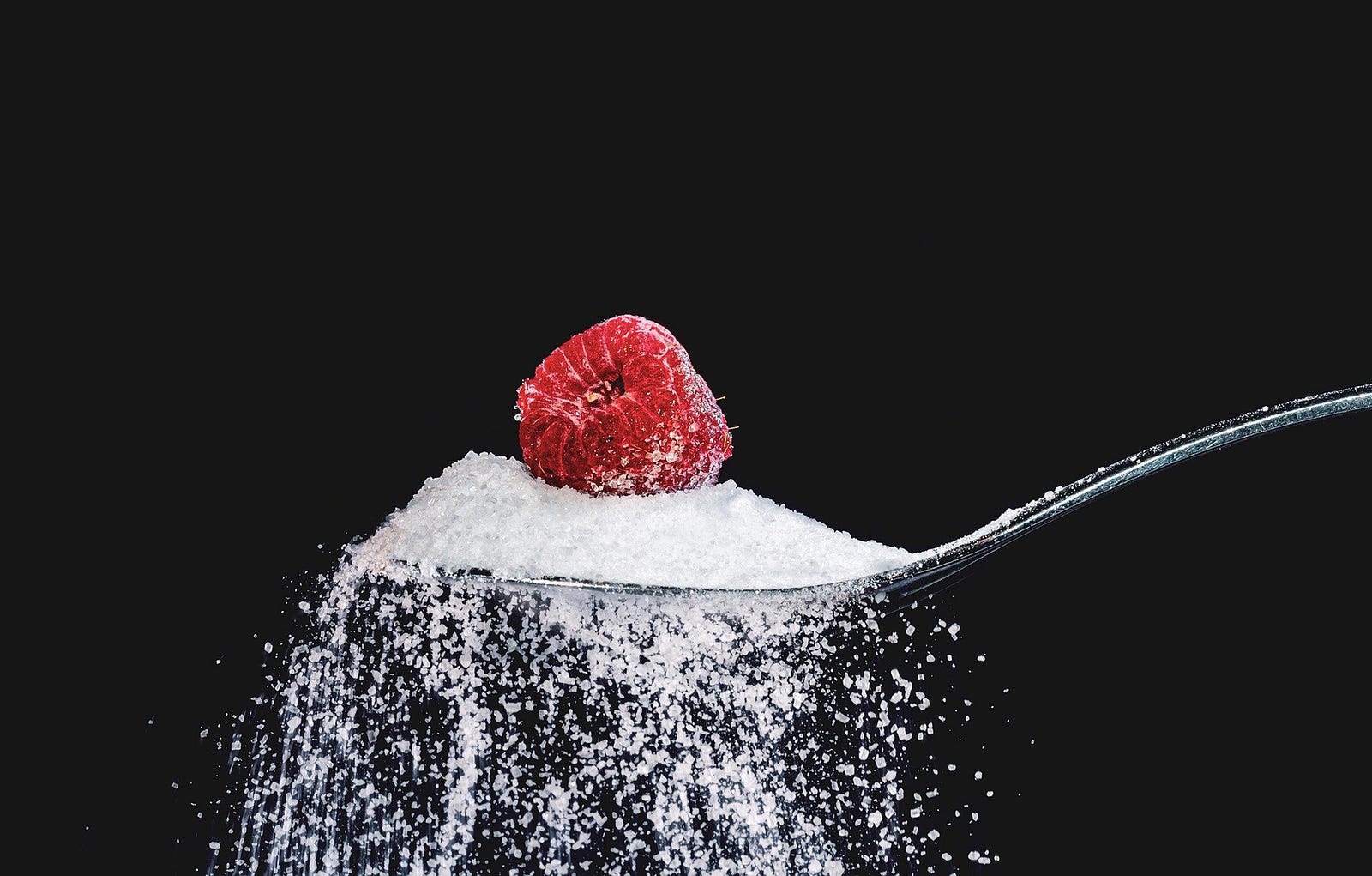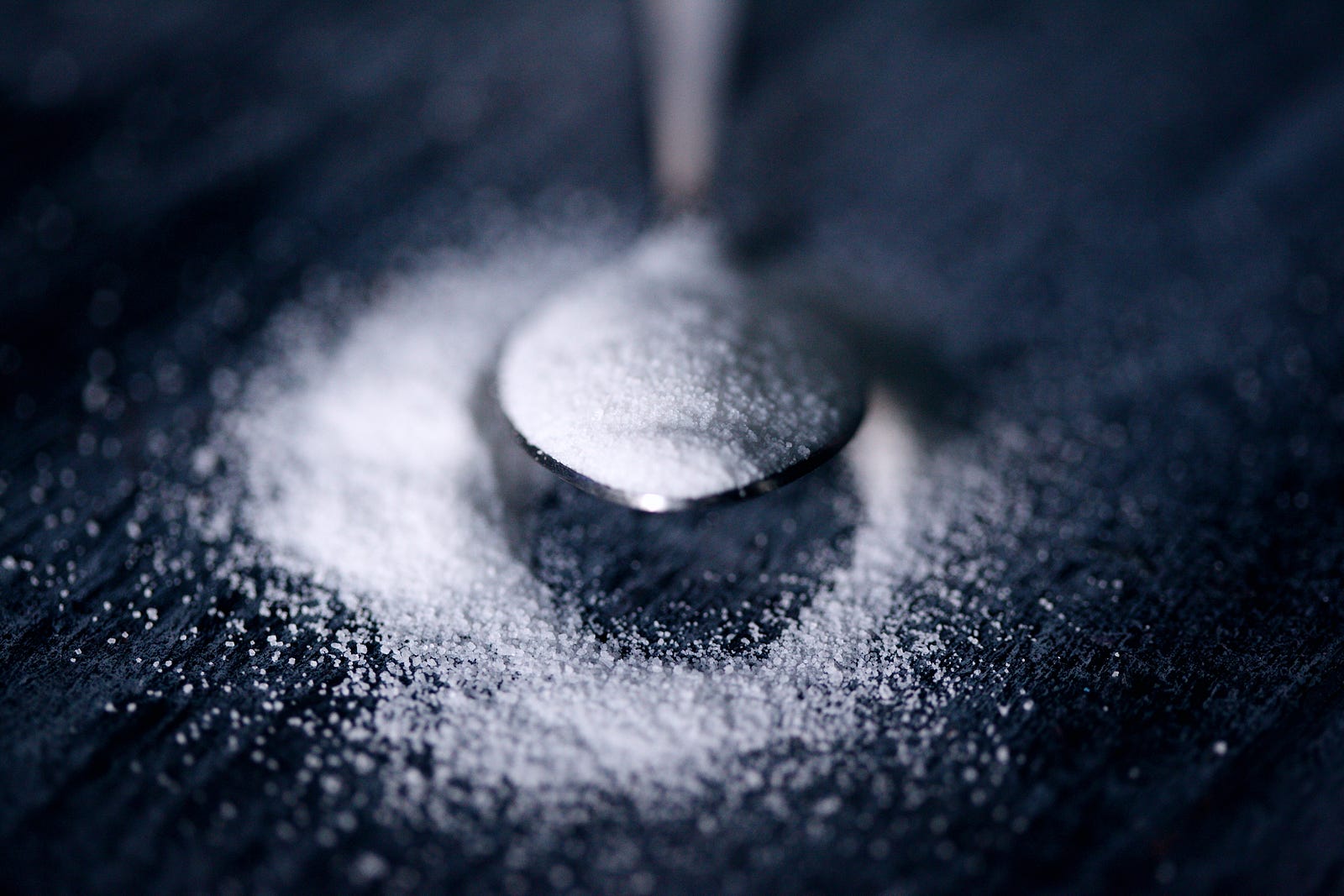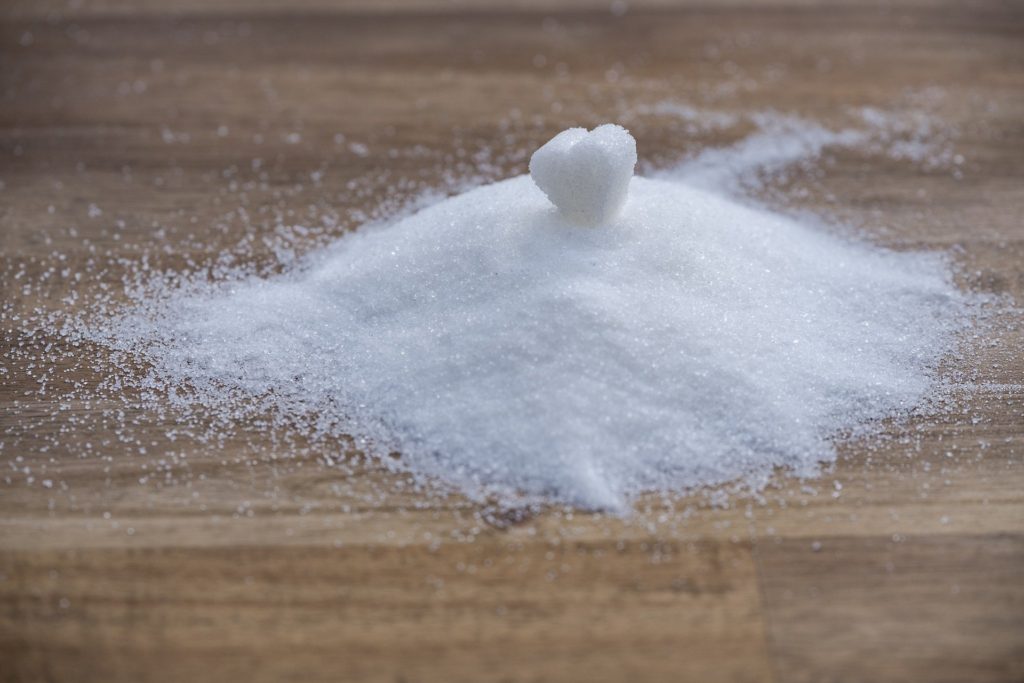Most artificial sweeteners are technically “total carbs,” but since they have zero calories, you shouldn’t actually count them in your net carbs.
But, it’s a little more complex than that.
In the cut-and-dried world of nutrition, artificial sweeteners are a catch-22.
On one hand, they help you stay on track with your weight management goals by adding virtually no calories, sugars, or carbs to your meal.
On the other hand, some studies have suggested that artificial sweeteners may actually increase the risk of obesity and type 2 diabetes.
In this article, I’ll discuss if artificial sweeteners should be counted as carbs or not, and more importantly if they’re bad for you or not.
What Are Artificial Sweeteners?
Artificial sweeteners are non-nutritive (calorie-free) chemicals that are used to replace sugar.
There are several different types of artificial sweeteners that have been approved for use by the FDA. Some of the most common include:
- Aspartame (diet soda)
- Acesulfame potassium (Equal)
- Saccharin (Sweet ‘N Low)
- Sucralose (Splenda)
In addition to these common artificial sweeteners, there are also sugar alcohols, like maltitol, xylitol, etc, that are also popular.
But, the problem with sugar alcohols is that, even though they taste closer to sugar than artificial sweeteners, they actually do contain some calories.
For example, most sugar alcohols have around 1.5 – 2.7 calories per gram which is pretty close to sugar’s 4 calories per gram.
But, the exception to this rule is erythritol, which is actually natural and has 0.2 calories per gram.

Are Artificial Sweeteners Carbs?
Artificial sweeteners shouldn’t be counted as carbs because they contain zero calories.
People on low-carb diets usually subtract the number of artificial sweeteners from the number of net carbs because artificial sweeteners don’t impact your insulin as other carbs do.
However, as I’ve mentioned above, some sugar alcohols have calories.
But, even though most sugar alcohols have calories, most of them get fermented and don’t need to be counted as carbs.
However, the exception to this rule is maltitol, which does get absorbed by the body.
But, since maltitol has 2.7 calories per gram, it isn’t the same as a normal carb and is instead like “2/3 of a carb.”
And, since this calculating process can be confusing, I’ll now explain why you should calculate net carbs instead of total carbs and how to calculate net carbs with examples.
Why You Should Track Net Carbs Instead of Total Carbs
The reason most people on low-carb diets track net carbs instead of total carbs is that some foods that are high in carbs, like a diet soda, don’t actually affect your insulin.
So, there’s no point in counting the carbs in that food.

How to Calculate Net Carbs
To calculate the net carbs in a food item, you need to find the total carb content first.
Then, you take the carb content in one serving of the food item and subtract the fiber and zero-calorie sweetener content.
That’s the number of net carbs.
Here’s an example to help you better understand:
Let’s say you want to eat some sugar-free, sweetened yogurt with berries on the side.
You check the nutritional label on the packaging which says that there are 22 grams of carbs per serving.
You also see that there are 2 grams of fiber in the yogurt, so you will subtract the 2 grams of fiber from the 22 grams of carbs to get 20 grams of net carbs.
But, you also see that there are 13 grams of artificial sweeteners, which should also be subtracted from the net carbs.
Finally, the yogurt comes out to 7 grams of net carbs per serving.
So, what was originally a “high-carb” food became a low-carb food just by subtracting the artificial sweeteners in it.
But, there is a problem with using artificial sweeteners and sugar alcohols.
What’s the Problem With Artificial Sweeteners and Sugar Alcohols?
The problem with using artificial sweeteners and sugar alcohols is that they cause harmful effects on the body.
For example, one study with around 3,000 people found that those who regularly consumed artificial sweeteners increased their risk of developing stroke and dementia by 3x!
This happens because artificial sweeteners are chemicals that aren’t natural.
So, when you consume them, they cause neurotoxic damage to the brain, which over time results in brain diseases like Alzheimer’s.
And the problem with sugar alcohols is that they feed the bad bacteria in your gut, which can result in symptoms like diarrhea.
But, that doesn’t mean that all hope is lost for people who want to avoid sugar.
*Note: Some of these links are Amazon affiliate links which I earn a small commission from.*

Natural Alternatives to Artificial Sweeteners and Sugar Alcohols
Natural zero-calorie sweeteners, like stevia, erythritol, and monk fruit, are gaining in popularity because they don’t cause the issues that artificial sweeteners and sugar alcohols cause.
- Stevia–Stevia is a natural zero-calorie sweetener that comes from the Stevia plant, which is native to South America. It is about 200 times sweeter than sugar, so you need very little of it. If you’re interested in buying stevia, you can buy my favorite stevia here.
- Erythritol–Erythritol is a naturally occurring sugar alcohol that is about 70% as sweet as sugar. It is naturally found in some fruits, trees, and fermented foods. If you’re interested in buying erythritol, you can buy my favorite erythritol here.
- Monk Fruit–Monk fruit is a sweetener that comes from a fruit grown in Asia. It is about 200 times sweeter than sugar and does not raise blood sugar levels. If you’re interested in buying monk fruit, you can buy my favorite monk fruit sweetener here.
Conclusion
For the most part, artificial sweeteners do not contain carbohydrates, but there are some exceptions.
For example, some sugar alcohols, like maltitol, do contain some carbs.
However, it’s important to remember that artificial sweeteners aren’t completely harmless.
Although they are not metabolized in the same way that regular table sugar is, they can still cause health problems.
Because of that reason, you should use natural zero-calorie sweeteners, like stevia, instead of other sweeteners whenever possible.
If you want to find out how I lost 40 pounds with keto and OMAD, you can read my article here where I share everything I did, and how you can lose weight too.
Hope this helped!
- Can You Still Lose Weight If You Aren’t in Ketosis? - February 8, 2023
- Can the Keto Diet Help With Depression? - February 8, 2023
- Why Does Processed Food Make You Fat? - January 2, 2023




